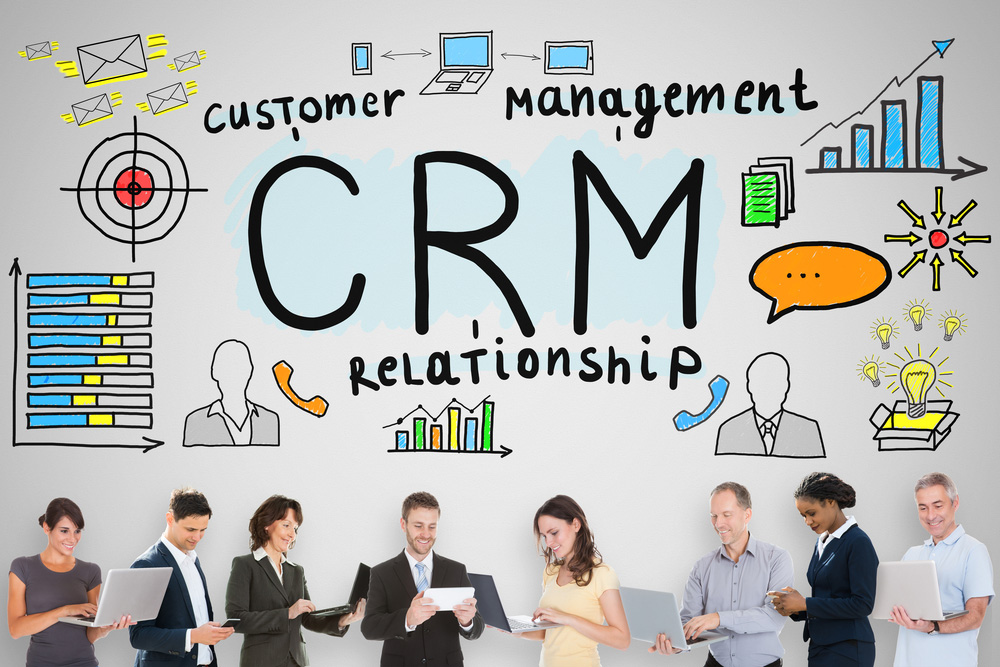In the world of sales, the journey from lead acquisition to customer loyalty is a complex and nuanced process. Effective management of this ...

Understanding the Sales Funnel
The Stages of the Sales Funnel
The sales funnel represents the stages a potential customer goes through before making a purchase. Understanding these stages is crucial for effectively managing leads and converting them into loyal customers.
- Awareness: The prospect becomes aware of your product or service.
- Interest: The prospect expresses interest and seeks more information.
- Consideration: The prospect evaluates your product against competitors.
- Intent: The prospect shows intent to buy.
- Purchase: The prospect makes the purchase.
- Loyalty: The customer returns for repeat business and becomes loyal.
The Role of CRM in the Sales Funnel
A CRM system supports each stage of the sales funnel by organizing data, automating tasks, and providing insights that help sales teams move prospects from one stage to the next.
Lead Management and Nurturing
Capturing Leads
CRMs offer tools for capturing leads from various sources such as websites, social media, and events. Automated forms and integrations with marketing tools ensure that no lead is missed.
Example: Web Forms Integration
Integrating web forms with your CRM allows leads to be automatically added to your database when they fill out a form on your website. This seamless process ensures quick follow-up.
Qualifying Leads
Not all leads are equal. CRM systems help sales teams qualify leads by scoring them based on predefined criteria such as engagement level, demographic information, and buying intent.
Lead Scoring
Lead scoring assigns points to leads based on their actions and characteristics. High-scoring leads are prioritized for follow-up, ensuring that sales efforts are focused on prospects most likely to convert.
Nurturing Leads
Lead nurturing involves building relationships with prospects through personalized communication and targeted content. CRMs automate this process by sending relevant information at the right time.
Automated Email Campaigns
CRMs can automate email campaigns that provide prospects with valuable content based on their interests and stage in the sales funnel. This consistent engagement keeps your brand top of mind.
Enhancing Customer Engagement
Personalized Communication
Personalized communication is key to building trust and rapport with prospects. CRMs store detailed information about each lead, allowing sales teams to tailor their messages to individual needs.
Example: Personalized Email Templates
Using CRM data, sales teams can create personalized email templates that address the specific needs and interests of each lead. Personalization increases engagement and response rates.
Timely Follow-Ups
Timely follow-ups are crucial for keeping leads engaged. CRMs automate follow-up reminders and ensure that no lead falls through the cracks.
Follow-Up Schedules
CRMs help sales teams create follow-up schedules based on the lead’s behavior and interactions. Automated reminders ensure that follow-ups happen at the optimal time.
Building Relationships
Building strong relationships with leads requires consistent and meaningful interactions. CRMs provide a history of all interactions, helping sales teams understand the lead’s journey and tailor their approach.
Activity Tracking
CRMs track all activities related to a lead, including emails, calls, meetings, and notes. This comprehensive history allows sales teams to provide a personalized experience and build stronger relationships.
Converting Leads into Customers
Addressing Objections
One of the biggest challenges in sales is addressing objections. CRMs help sales teams anticipate and address common objections by providing insights into the lead’s concerns and behavior.
Objection Handling Templates
CRMs can store templates for handling common objections, providing sales teams with quick and effective responses that can be personalized for each lead.
Demonstrating Value
To convert leads into customers, sales teams must demonstrate the value of their product or service. CRMs provide data and tools to create compelling presentations and proposals.
Example: Custom Proposals
Using CRM data, sales teams can create custom proposals that highlight the features and benefits most relevant to the lead’s needs. This tailored approach increases the likelihood of conversion.
Closing the Deal
The final stage of the sales process is closing the deal. CRMs streamline this process by automating contract generation, approval workflows, and electronic signatures.
Automated Contract Generation
CRMs can automatically generate contracts based on predefined templates and lead information. This automation speeds up the closing process and reduces the risk of errors.
Fostering Customer Loyalty
Onboarding and Support
Customer loyalty begins with a positive onboarding experience. CRMs help sales teams coordinate with support teams to ensure that new customers are properly onboarded and receive the support they need.
Example: Onboarding Workflows
CRMs can create onboarding workflows that guide new customers through the setup process and provide them with the necessary resources. This structured approach enhances the customer experience.
Continuous Engagement
Maintaining customer loyalty requires continuous engagement. CRMs automate post-purchase follow-ups, surveys, and loyalty programs to keep customers engaged and satisfied.
Loyalty Programs
CRMs can manage loyalty programs by tracking customer purchases and rewards. Automated notifications remind customers of their rewards and encourage repeat purchases.
Gathering Feedback
Feedback is essential for improving products and services. CRMs facilitate the collection of customer feedback through surveys and direct interactions.
Example: Feedback Surveys
CRMs can send automated surveys after a purchase or support interaction, gathering valuable insights into customer satisfaction and areas for improvement.
Conclusion
Turning leads into loyal customers is a complex process that requires effective management and strategic use of data. CRMs provide sales teams with the tools they need to capture, qualify, and nurture leads, enhance customer engagement, and foster long-term loyalty. By leveraging the capabilities of a CRM, sales teams can streamline their processes, build stronger relationships, and drive sustainable growth. In today’s competitive market, a well-implemented CRM system is essential for turning potential leads into loyal, satisfied customers.






